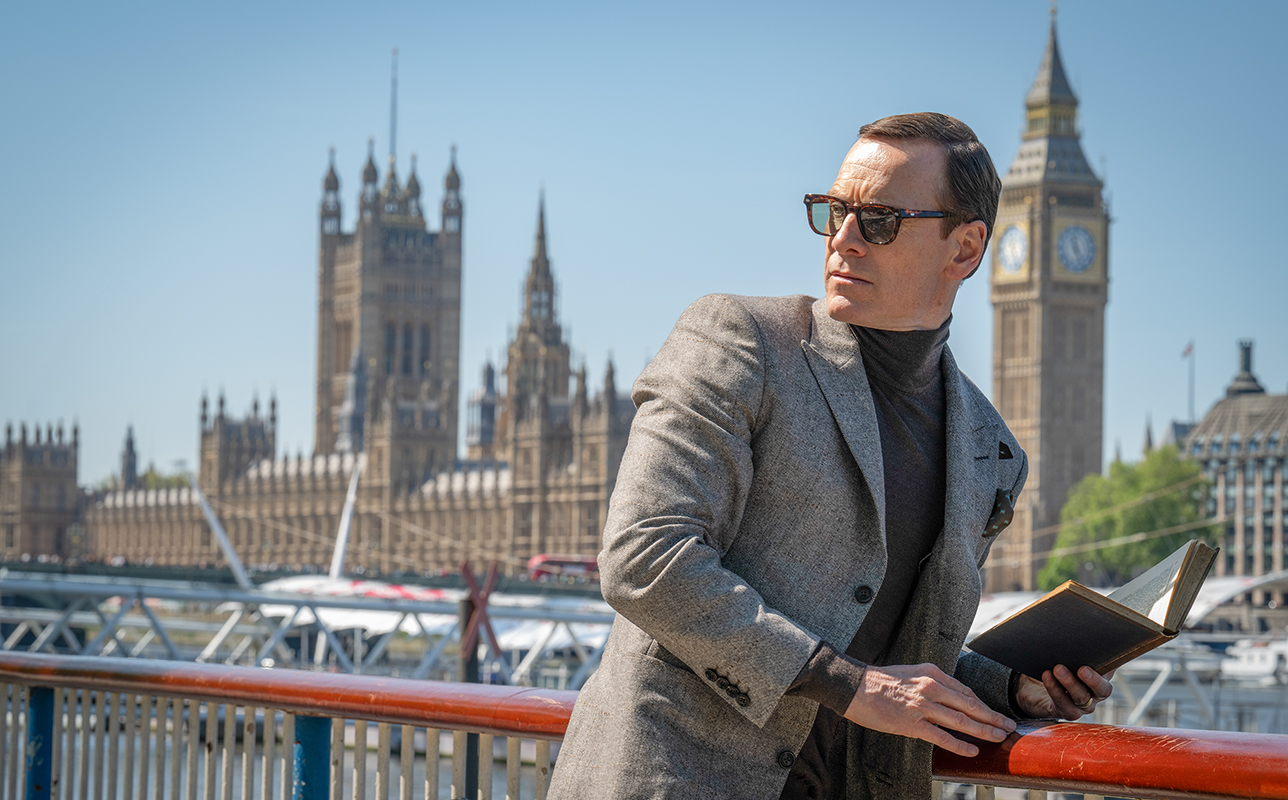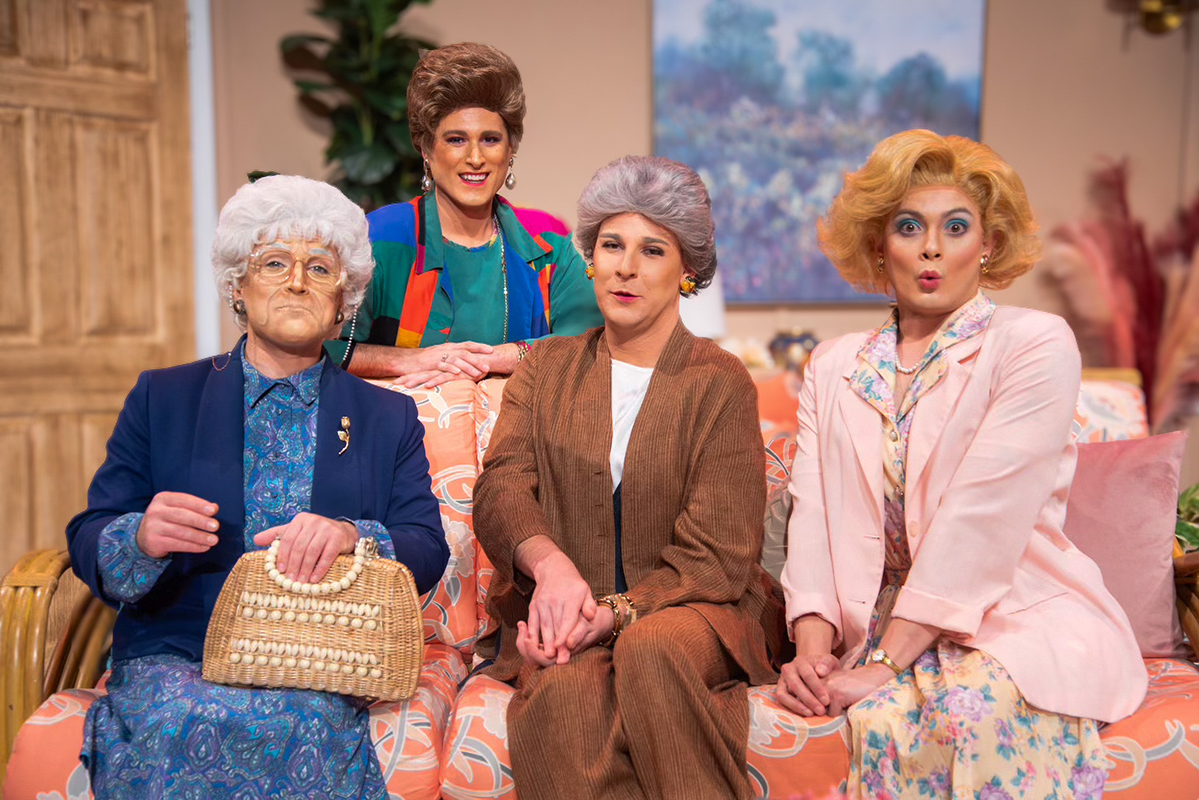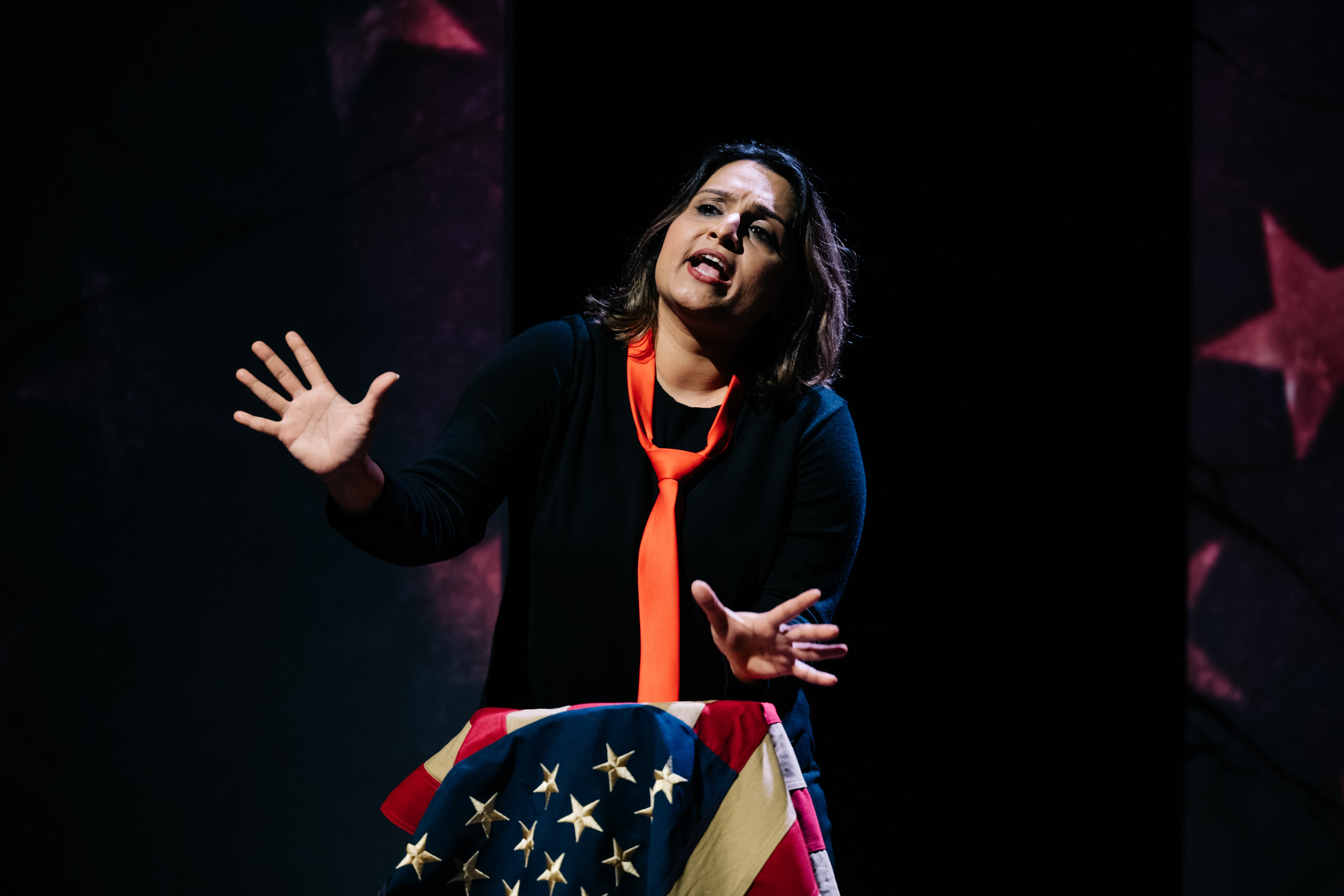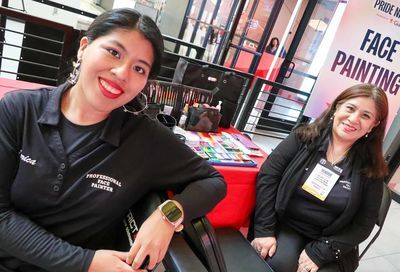‘Broadway Rising’ Review: Showstopper
'Broadway Rising' offers a comprehensive chronicle of a community knocked down by COVID and then rising resiliently to its feet.

A billion-dollar industry, a cultural institution, and an exclusive club of buildings and stages scattered around midtown Manhattan, Broadway encompasses a world of meaning. It also refers to the community of artists, performers, producers, designers, craftspeople, stagehands, and staff whose lives and livelihoods are bound to the New York theater.
As shown in director Amy Rice’s illuminating documentary Broadway Rising (★★★☆☆), that community suffered — along with people around the globe — shattering losses due to the COVID-19 pandemic. And the ensuing lockdown brought Broadway — the industry, the institution, and all its stages and citizens — to an unprecedented standstill.
Produced by Tony-winner Jesse Tyler Ferguson and husband Justin Mikita, Broadway Rising sets the stage with a reminder that after 9/11, Broadway shows shuttered for two days. But during the frantic early days of COVID, Broadway shows shut down on March 12, 2020, and wouldn’t reopen for more than a year and a half.
Over a montage of eerily quiet, empty streets in usually crowded Times Square, Rice’s film effectively rewinds the clock with copious footage from those fearful first days. “Canceling a show is unheard of,” marvels Danny Burstein, who was performing his Tony-winning role in Moulin Rouge! The Musical, one of 16 musicals and plays forced to cancel months of shows.
Producer Kevin McCollum was set to open the musical Six on exactly the night that then-Governor Cuomo announced Broadway would be closing, for supposedly a month. McCollum describes having to switch from planning for the opening night red carpet, to breaking the news of the cancellation. Then, he had to run to the theater where his other show, Mrs. Doubtfire, was playing to announce to the company that the show would not go on.

Rice’s film debriefs a diverse tapestry of folks within the Broadway community — not just marquee performers like Burstein, Patti LuPone, and Sara Bareilles, but also playwright Lynn Nottage, costume shop owner John Kristiansen and his husband and business partner Brian Blythe, and usher Peter McIntosh, the first known COVID case among those staffing the Broadway houses. Every affected profession is considered, including the theatrical dry cleaner that has to let some of its workers go.
As the movie progresses chronologically, from reacting to the sudden stoppage, to adapting to the downtime, contemplating alternative sources of income and fulfillment, then gleefully anticipating a safe return to the stage, it’s the stories of the not-rich-and-famous that emerge as the most compelling.
Not surprisingly, watching producer McCollum fret over ticket sales doesn’t arouse emotion quite like seeing Jagged Little Pill stage doorman Ernie Paylor, whose foot was amputated after a long COVID illness, tearfully thank his coworkers for their support. But the film persuasively demonstrates how the whole tapestry fits together.
Rice and her editing team fit the film together in concise, unshowy beats. Few of the stories evolve with much drama or suspense, but the insights into how Broadway lives and breathes feel genuine. In one of the few threads to engender suspense, veteran dancer and Broadway Bares fave Adam Perry questions whether he’ll be able to continue his stage career after he contracts a debilitating case of COVID.
The community, by that point, had already lost legendary playwright Terrence McNally, who died of complications from COVID within the first weeks of the pandemic. Then Waitress star Nick Cordero succumbed to the illness, a turning point for how seriously the entire industry would take this threat, covered in a perhaps too-brief beat in the film.
Rice allows McNally’s story more time to blossom. The Love! Valour! Compassion! writer’s widower, Broadway producer Tom Kirdahy, appears in the film, and, as he details McNally’s last days, his sorrow is palpable. As is his abundant joy on the day Broadway reopens after 551 days, and he can share the moment with his community, his show company, and with the loved ones who have moved on to other stages.
Broadway Rising is available through VOD and digital platforms, including iTunes and Amazon Prime Video. Click here for details.
Support Metro Weekly’s Journalism
These are challenging times for news organizations. And yet it’s crucial we stay active and provide vital resources and information to both our local readers and the world. So won’t you please take a moment and consider supporting Metro Weekly with a membership? For as little as $5 a month, you can help ensure Metro Weekly magazine and MetroWeekly.com remain free, viable resources as we provide the best, most diverse, culturally-resonant LGBTQ coverage in both the D.C. region and around the world. Memberships come with exclusive perks and discounts, your own personal digital delivery of each week’s magazine (and an archive), access to our Member's Lounge when it launches this fall, and exclusive members-only items like Metro Weekly Membership Mugs and Tote Bags! Check out all our membership levels here and please join us today!























You must be logged in to post a comment.